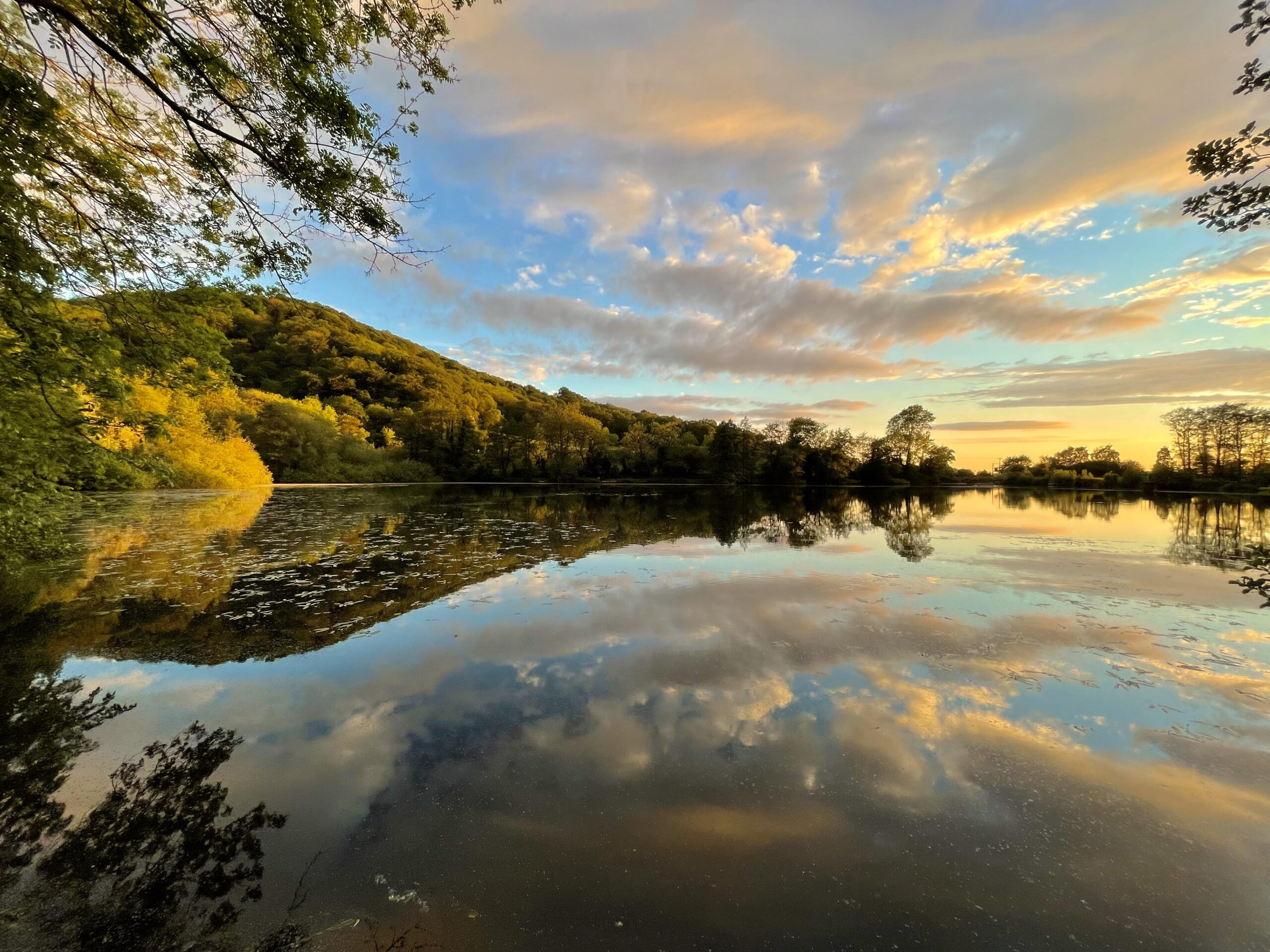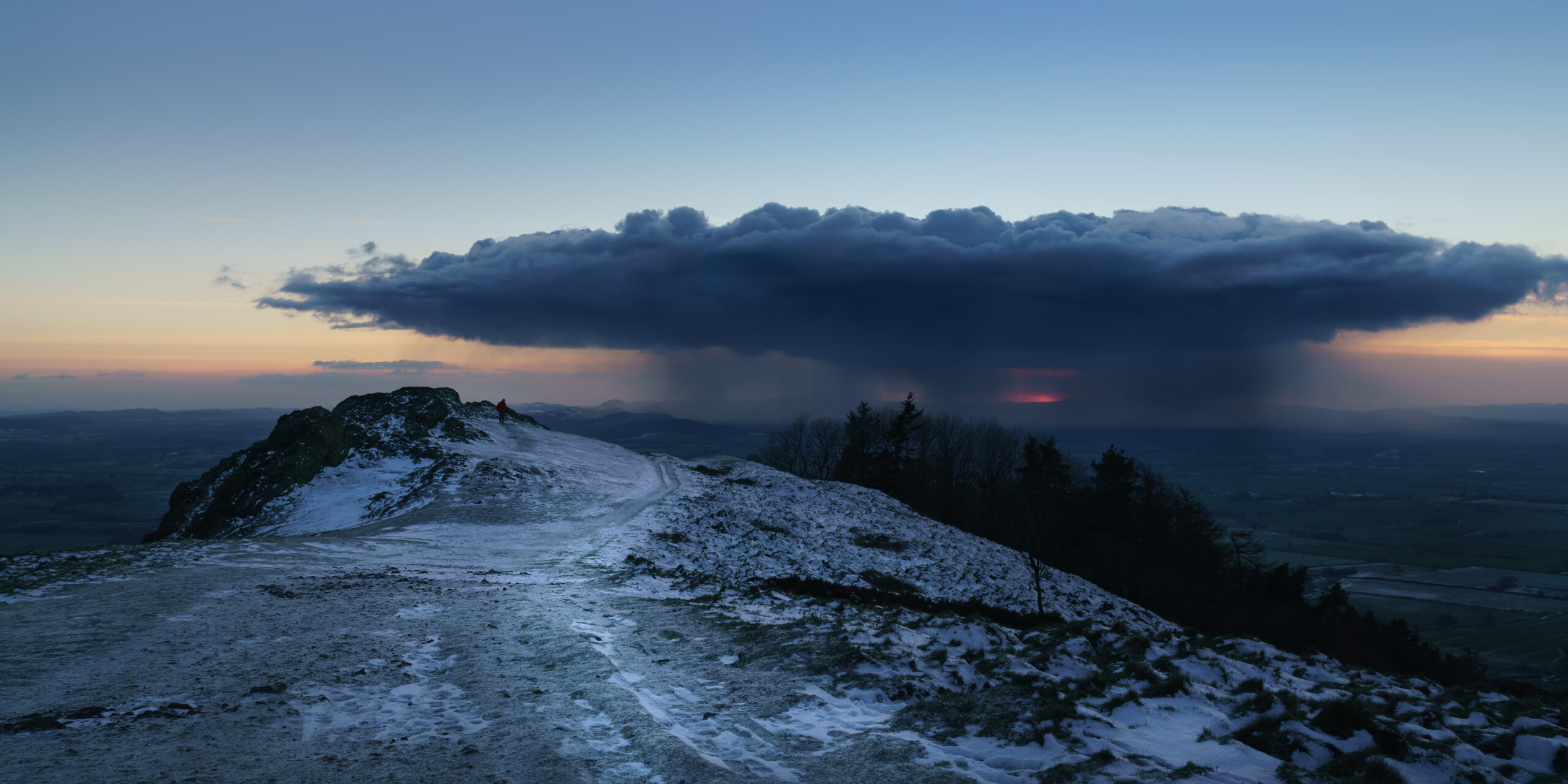
It is hard to believe that Generation Zero Carbon Shropshire have now been active for six months. Since then, they have been up to lots of exciting things all aimed at encouraging the citizens of Shropshire to do their bit to make the county carbon neutral by 2030.
The group marked their launch on Earth Day, April 22nd, 2021, with a county-wide competition urging creative responses to photography and writing challenges. Sifting through the stunning photographs and thought-provoking short stories to decide the winning entries was hard work. The successful submissions are well worth a moment of our attention.
Beautiful photographs of our county sum up why it is essential to protect Shropshire. Capturing this in his response to the title ‘Around the Wrekin’, Luke Slater’s photograph was adjudged the winner, for which Luke received vouchers from Okra restaurant in Shrewsbury.
Robin Fellows-Weir’s photo was highly commended as a testament to the beauty of our county irrespective of the season.
Inspired by the title of the written competion, ‘Me and the Sixth Mass Extinction’, Grace Griggs-Laing’s short story is a timely reminder to everyone that our actions can catch up with us quickly and before we know it, it is too late to stop the destruction.
You can read Grace’s story below.
Photo competition WINNER!
Around the Wrekin by Luke Slater

Photo competition HIGHLY COMMENDED
Around the Wrekin by Robin Fellows-Weir

Website: rfwphotovideo.co.uk
Instagram: @robinfwphotography
Short story competition WINNER!
Me and the Sixth Mass Extinction by Grace Griggs-Laing
What am I doing?
The beauty of Earth has never been as significant to me as it is now. The scarce beams of dappled light that battle their way through the leaves of the tree above me illuminate small areas of the forest floor, made all the brighter by the darkness pressing in around them. A cacophony of voices demands my attention, none of them human, yet all of them beautiful. Damp, earthy scents rise from the leaf-laden soil beneath my feet, slow yet unavoidable decomposition taking place as endless ants cart away sections of leaf to add to a nest. There’s not a breath of wind to shoo the scents away from my face.
I’ve made a mistake.
Disturbed by a sloth, a flurry of waxy leaves descend from high above my head. One flutters past my face, drifting through the air like a boat on water. I notice the pointed tip on its pristine surface before it touches down and is lost to the carpet of leaf mulch below. A small puddle of stagnant water, left from the afternoon’s rain, has been trapped in the hollow of a fallen log. It now accommodates a drowned Rhinoceros beetle, and I sigh. It seems even a world so full of life must have its fair share of death.
I’ve been so stupid.
The call of a bird startles me out of my reverie, and I glance around in search of the culprit. High up in a banana tree, a scarlet macaw is poised on the smooth, thin bark that covers its branches. It ruffles its feathers indignantly at my attentions, but sits peacefully enough while I take in its vibrancy. A white face is highlighted by an outline of bright red. Red fades into orange, the irregularity beautifully at odds with the vivid blue of its wings. Even as I take it in, the bird tires of its stillness and launches itself into the air, gliding effortlessly around a slalom of trees, a master of its craft.
Abruptly reminded of my own cumbersome movement, I am all too aware of the twinge of pain that comes with my stiff, under-muscled limbs shifting into movement. I force my muscles to function, only half concentrating on my ambling footsteps. My attention is held by my surroundings, the wonder on my face equivalent to that of a small child being introduced to the world of sweet shops for the first time. Why have I never been here before? I’m suddenly ashamed of my ignorance.
Am I too late?
Enveloped in a universe of sound, my footsteps are a mere undertone, sounding awkward and human in a place that was never intended to be touched by the destructive hand of civilisation. And suddenly, in all my uncertainty, this is the one thing that leaves no room for doubt in my mind – I don’t belong here. I have no entitlement to stand here, to even mark the very ground with the overpriced, city-brought boots I wear. No entitlement to think I have any claim over this place, this wonderful place whose distinct beauty disregards all that’s wrong in the world I used to think I owned. I wish I’d woken up sooner to the truth; an ownership file with my name on it does not grant me free access to destruction. The world was never ours to control. We were placed here, by a God, by evolution, by some unknown power, just the same as every other animal here, yet we think of ourselves as authorised to destroy, to change, to exploit our world for selfish gain. We see ourselves as Gods, and I suddenly realise how far human stupidity really does extend. I am a mere fraction of the whole, never important enough to make a difference, yet always thinking I was the difference itself. To think I ever felt indescribably generous for every tree I left standing, for every time I reused a bag or recycled a plastic bottle. To think I ever believed I had a right to mar a world I thought I owned. And suddenly, my shame overrides my awe.
I have to stop.
With a sudden purpose, I double my pace, mind and body alike on autopilot. Brimming with energy, I no longer register the world around me. My only thoughts are of getting to the logging site I know is here, and making my voice heard.
I barely notice my pace quickening, until my feet are pounding out the scattered steps of a sprint. Rounding one final corner, I at last glimpse my destination. Smithfields Logging Company, the lorries pronounce, their disfigured faces leering at me. It’s only as I stop, gasping for breath in front of the workers’ judgemental eyes, that I realise what a mess I’m in. My suit, once ironed within an inch of its life, is now covered in leaves, and splashes of muddy water have traced their way up the backs of my trousers. The expensive shoes I wear to the office are too far gone to even bother cleaning. But I don’t care.
A worker steps up to me, his initial boredom replaced by poorly-concealed excitement. His jacket shares the logo from the lorry – Smithfields Logging – but its colour tells me his is hardly a senior member of the company. He stands up straighter, trying to look important. Trying to impress. ‘Good afternoon, Sir. Is there anything I can do for you, Mr Smithfields?’
Let us know what you think of our blog posts and newsletters and please feel free to share them with your family, friends and contacts.


Recent Comments